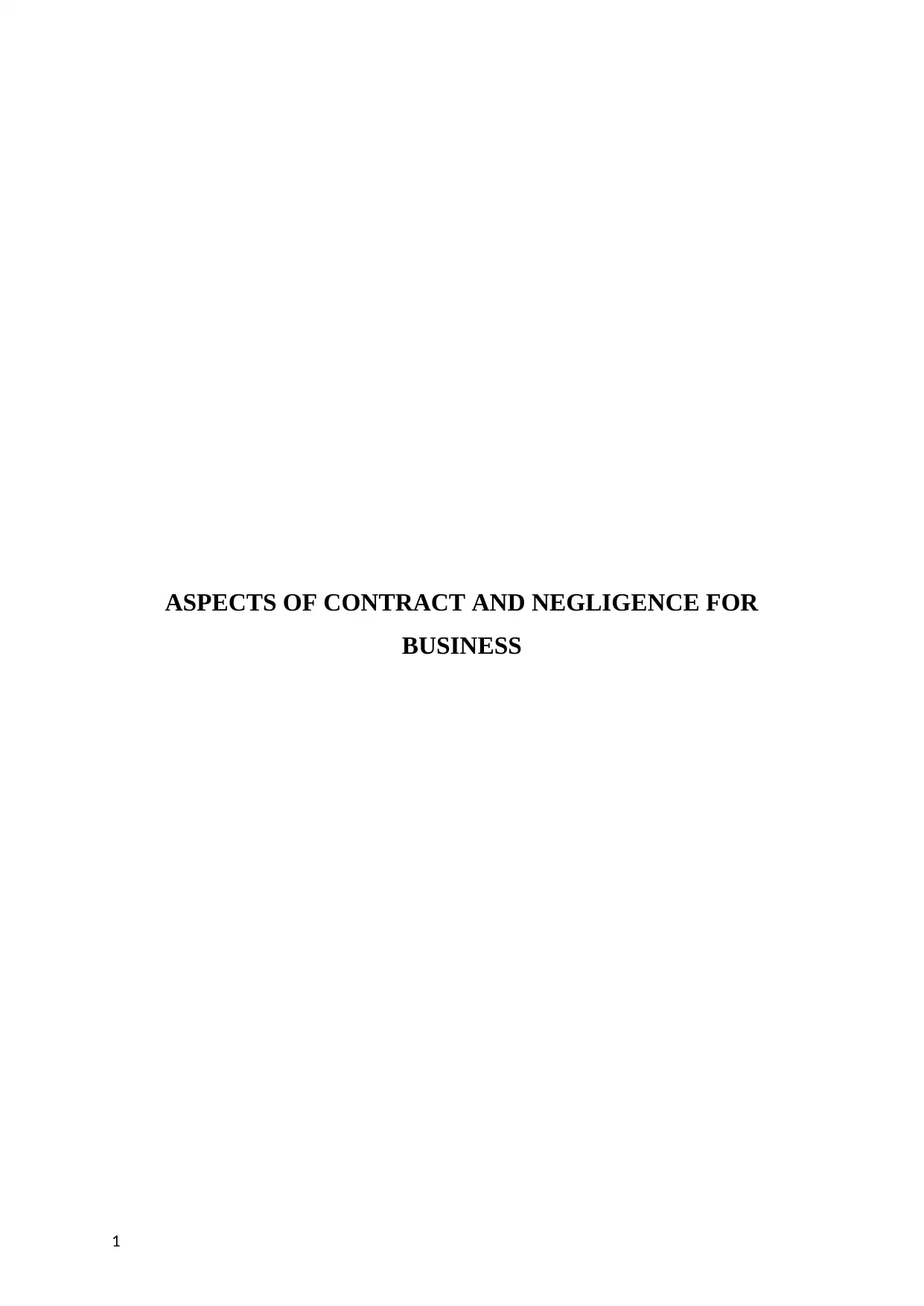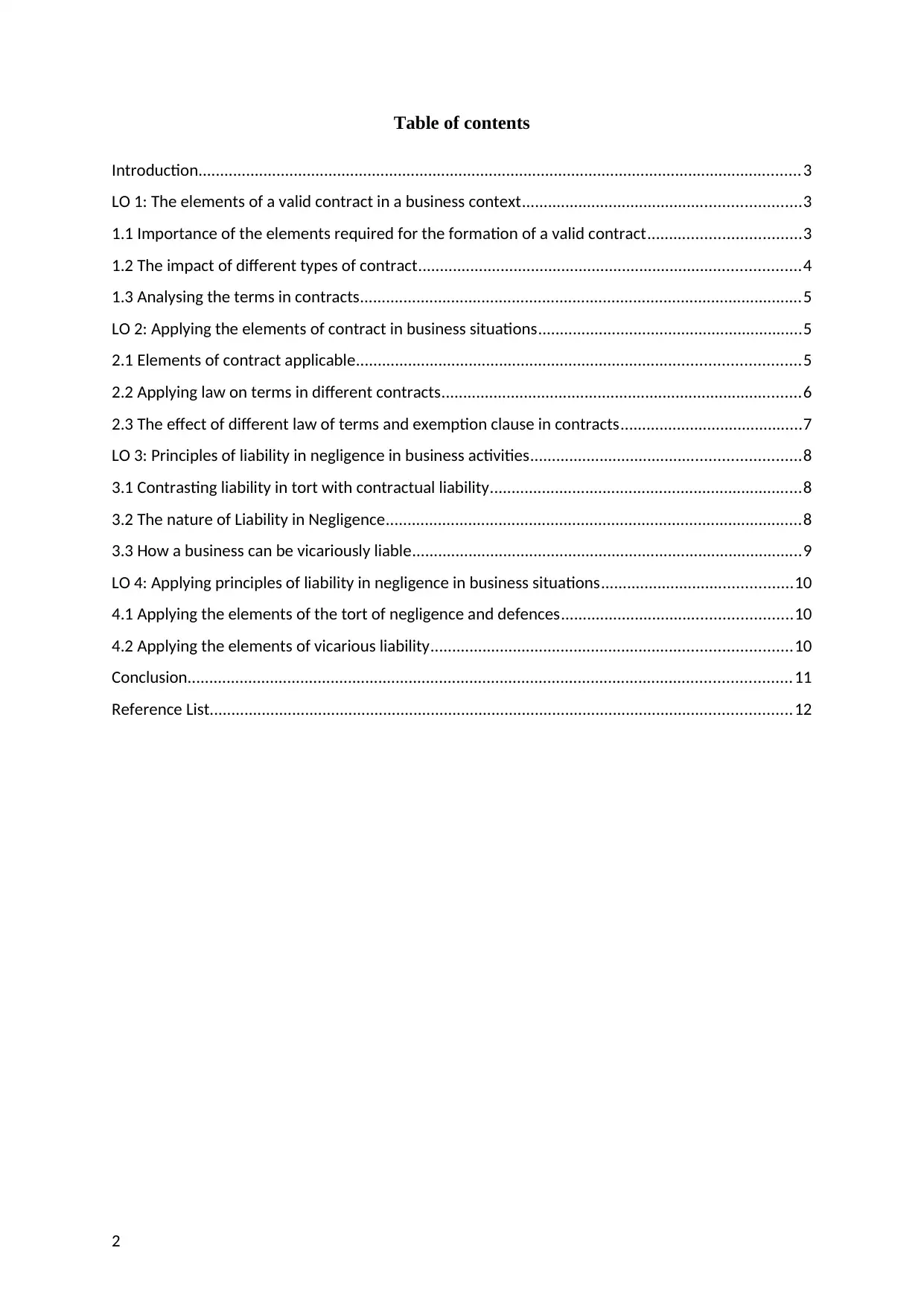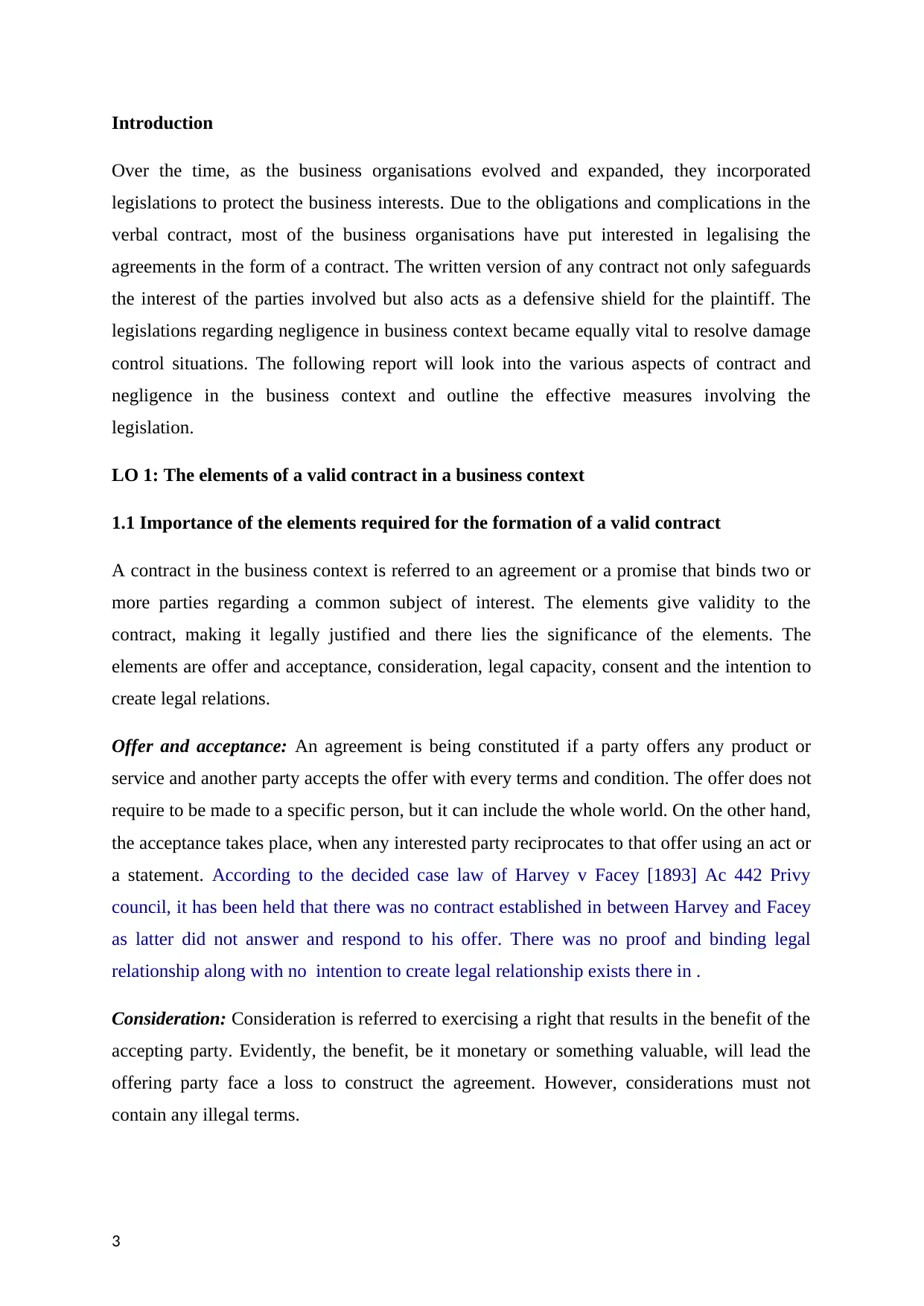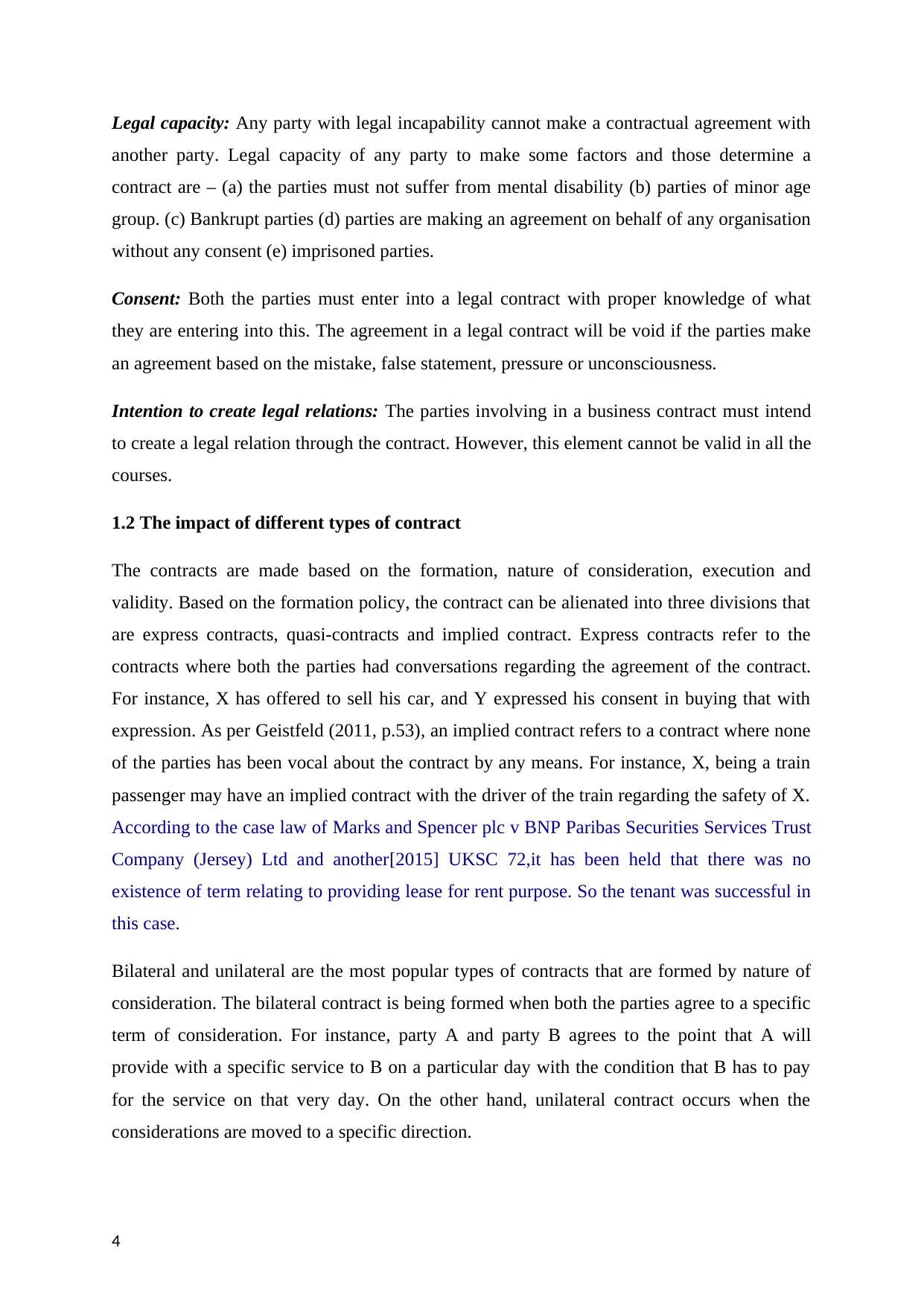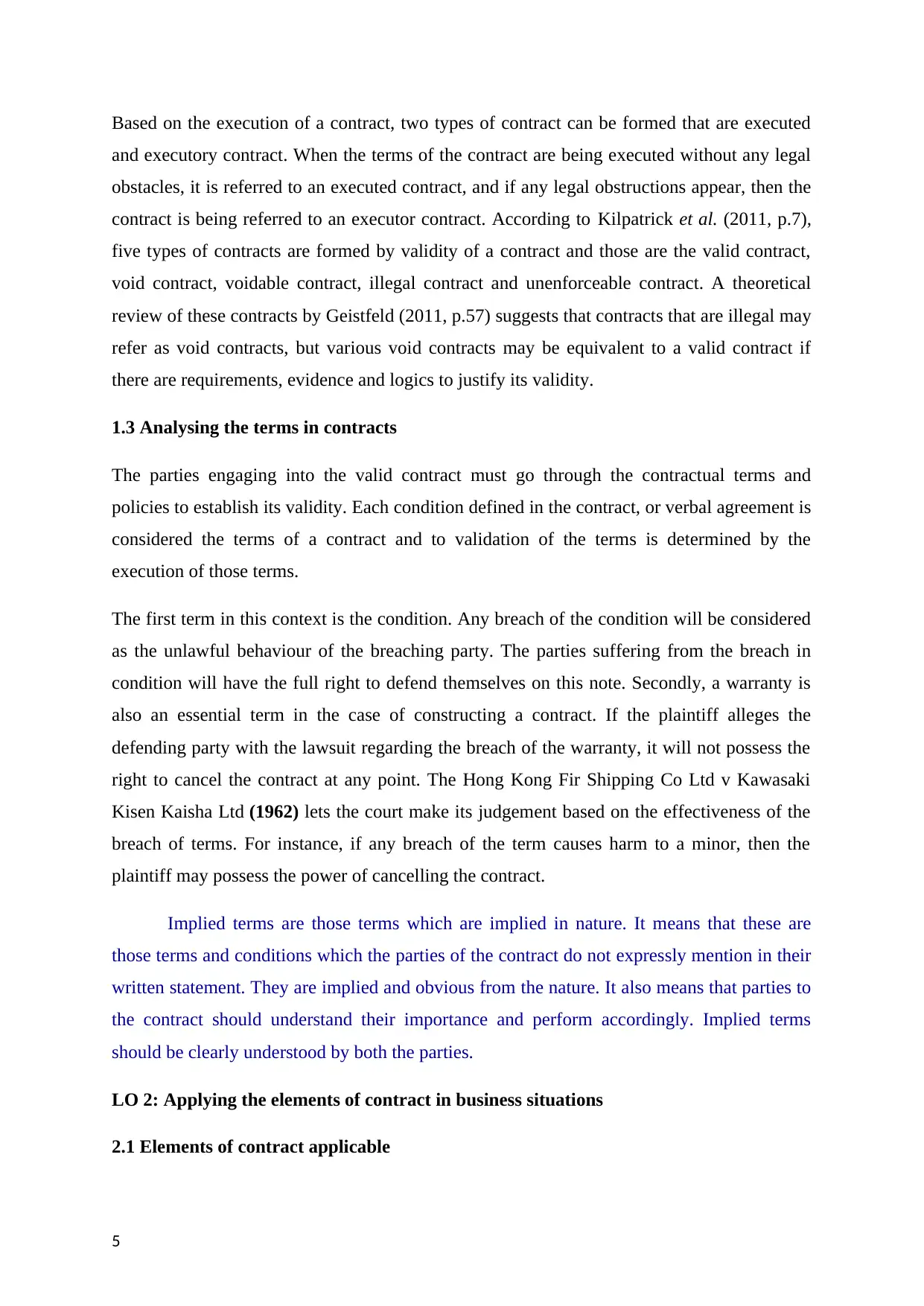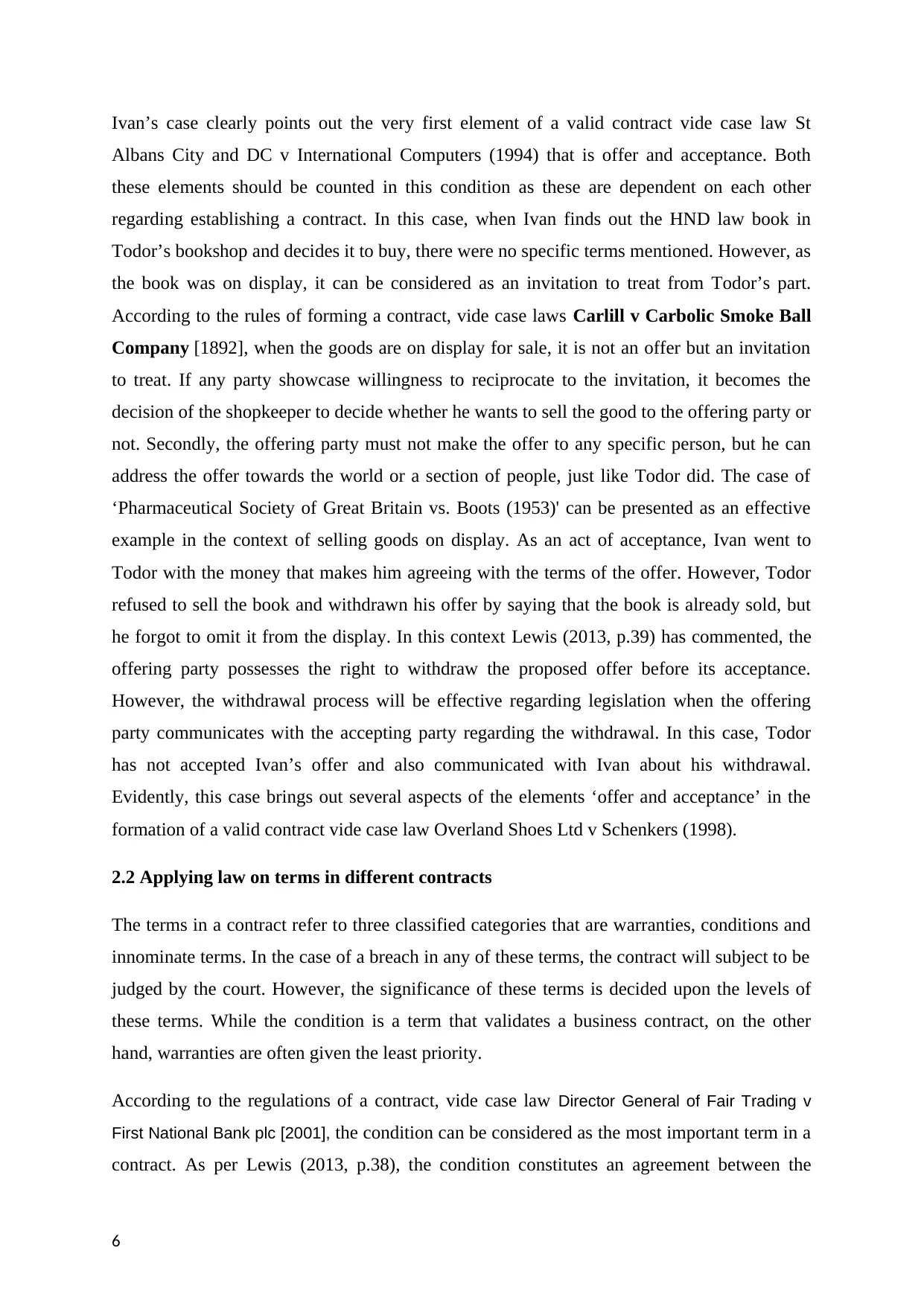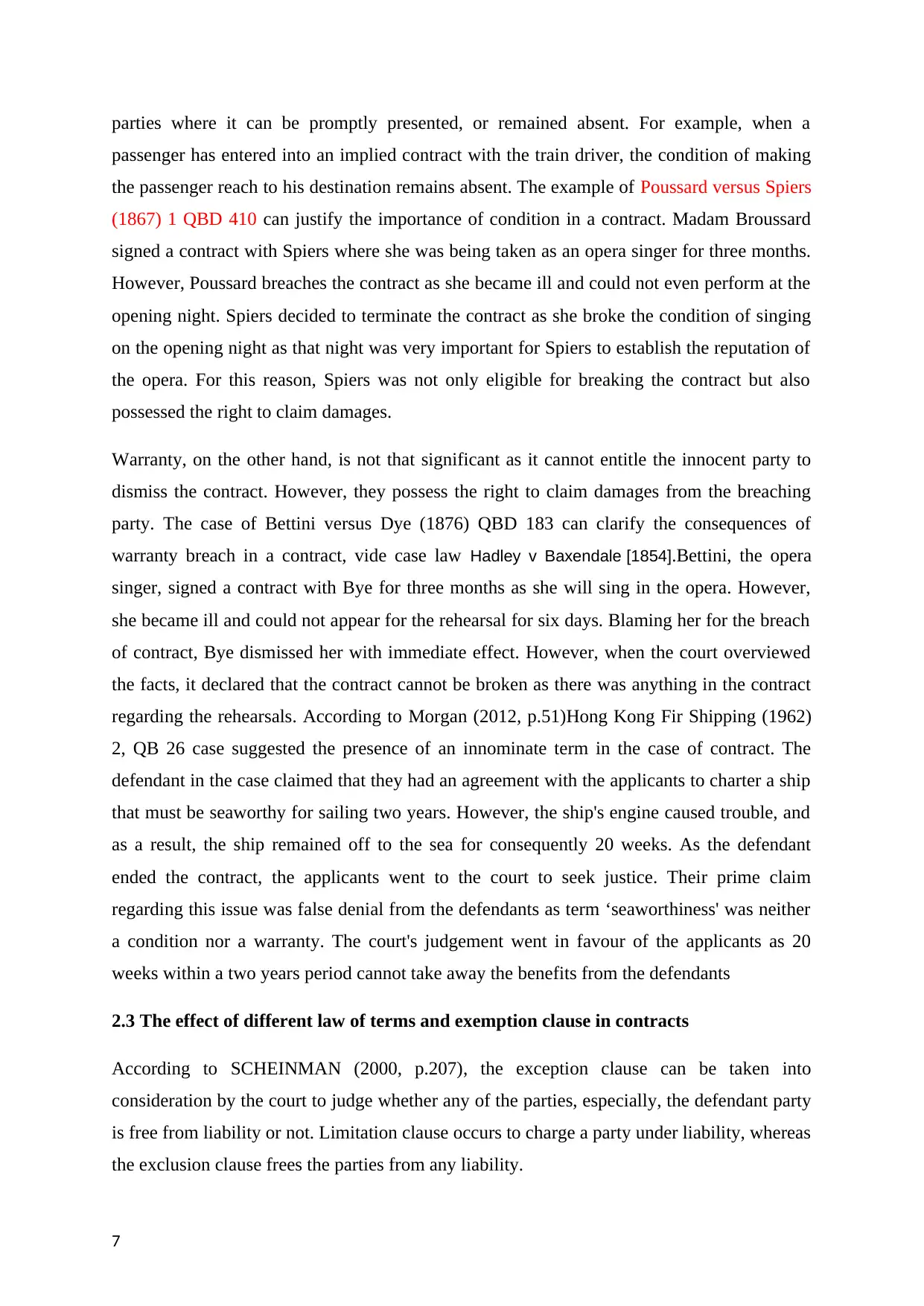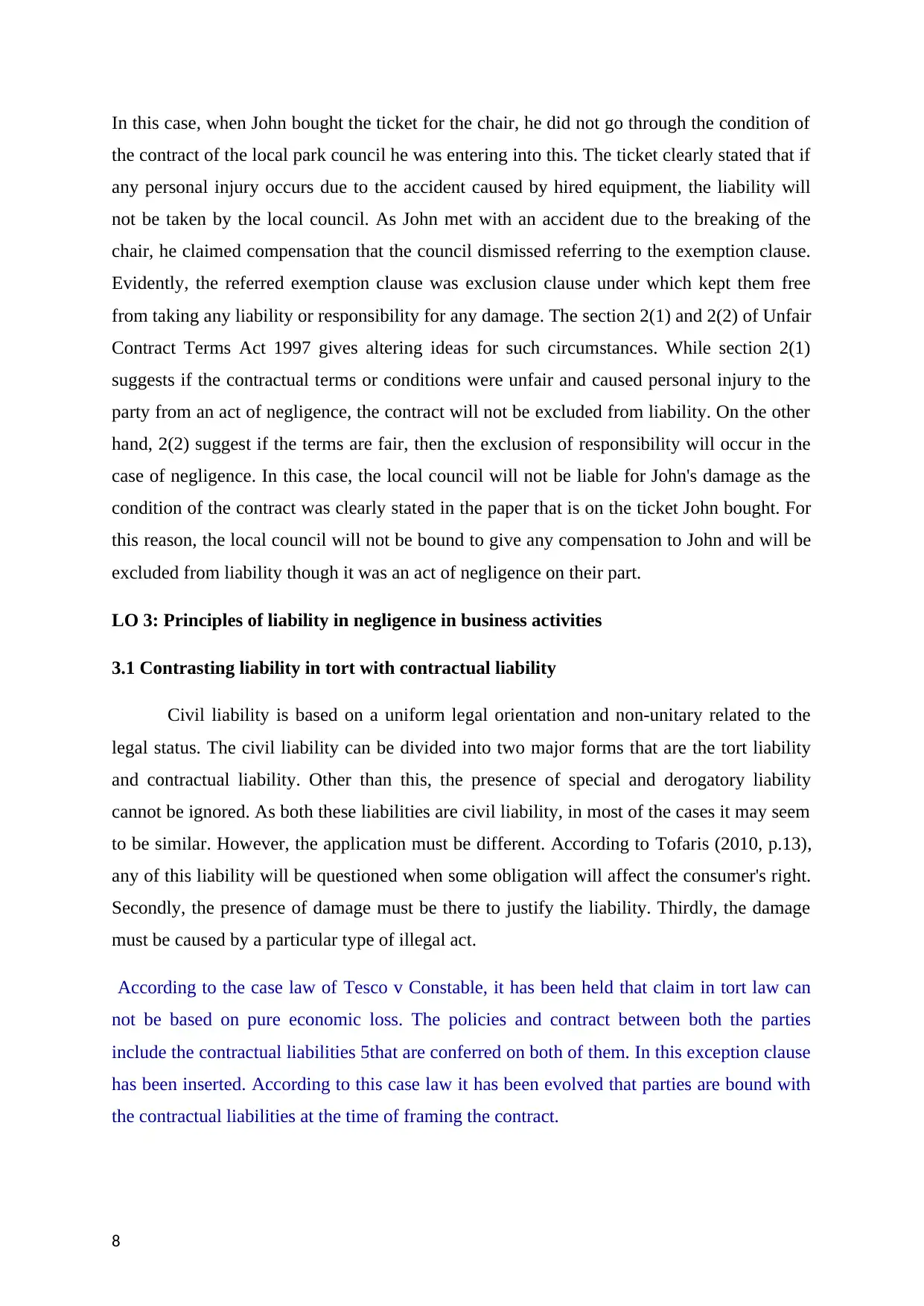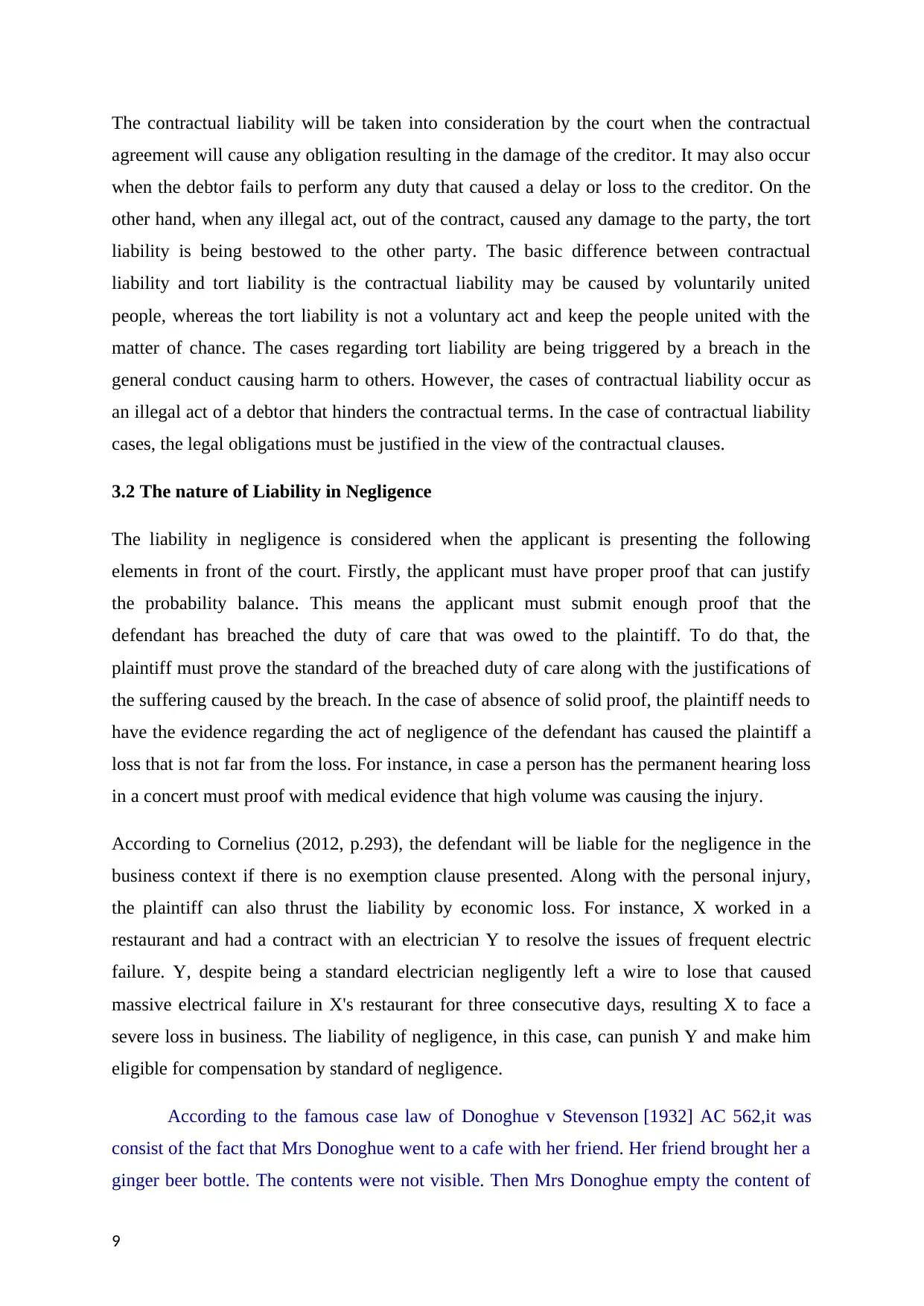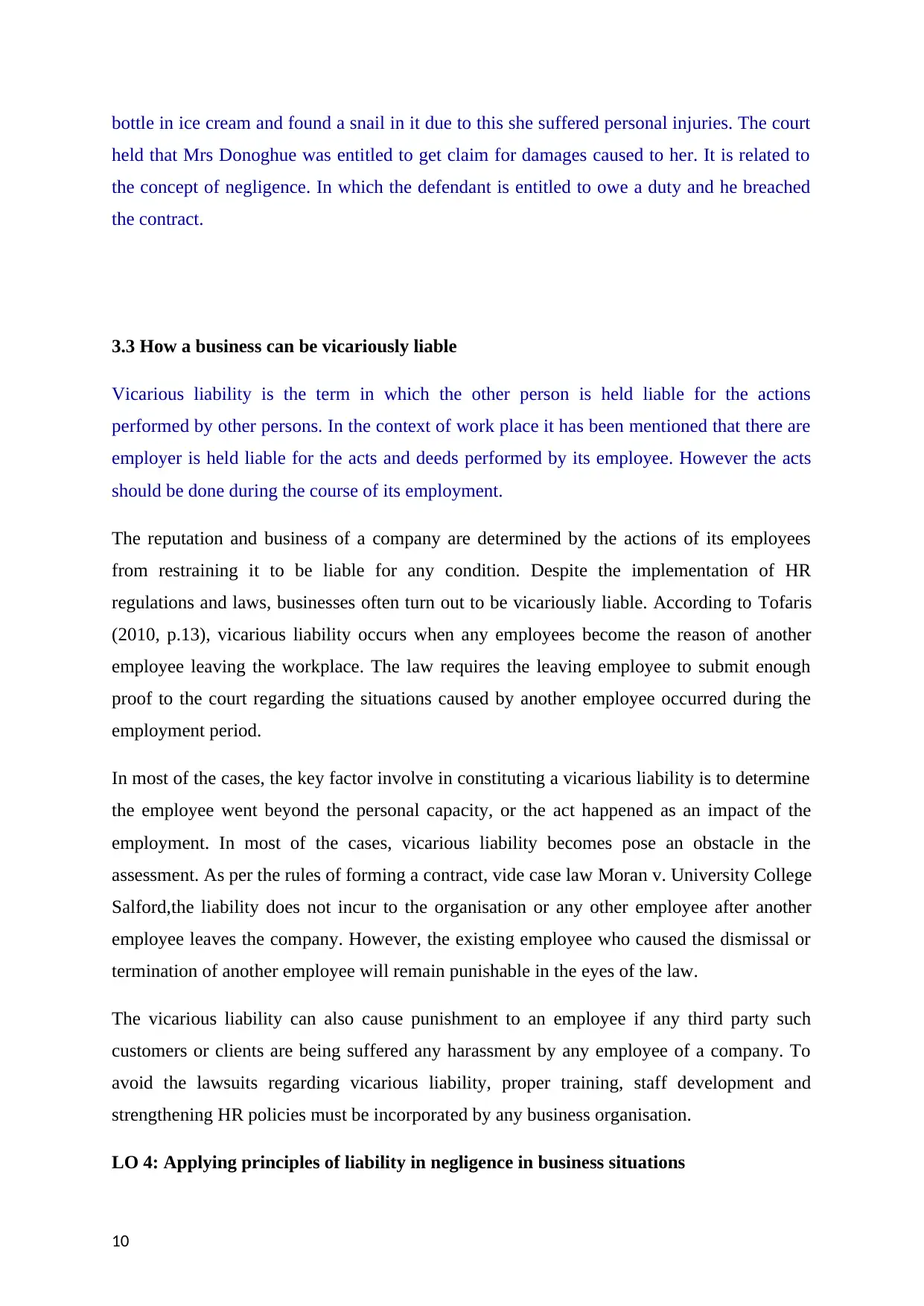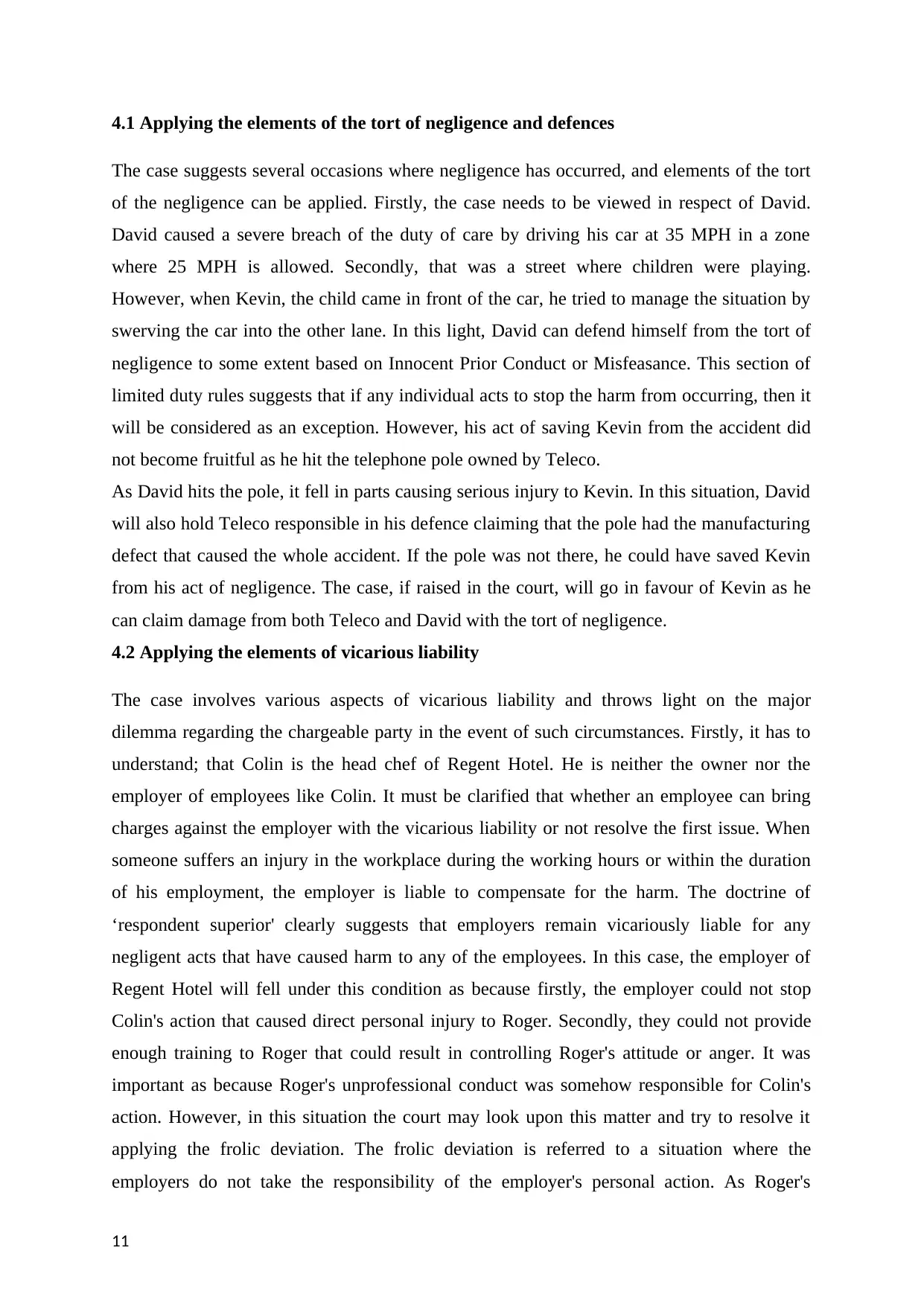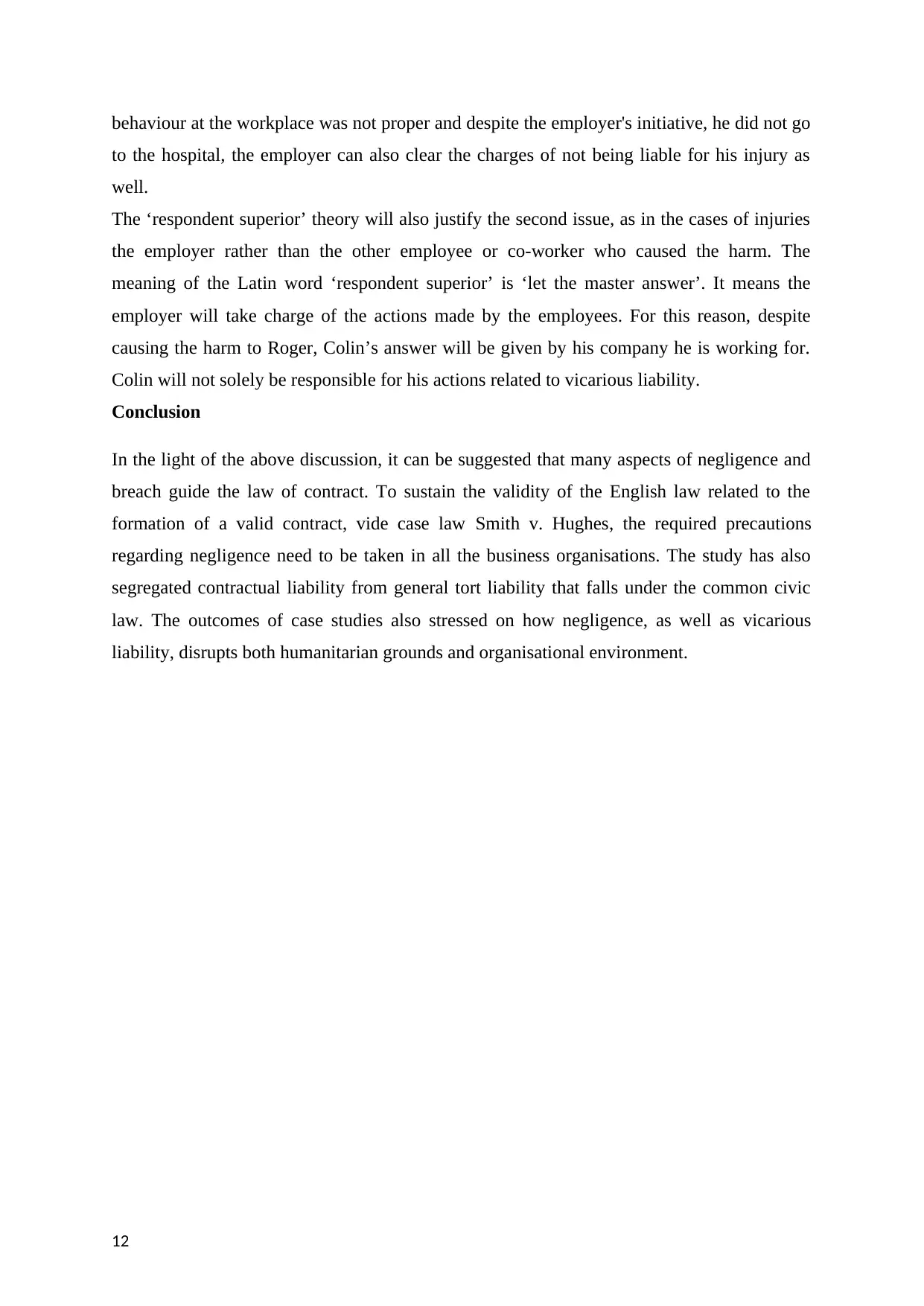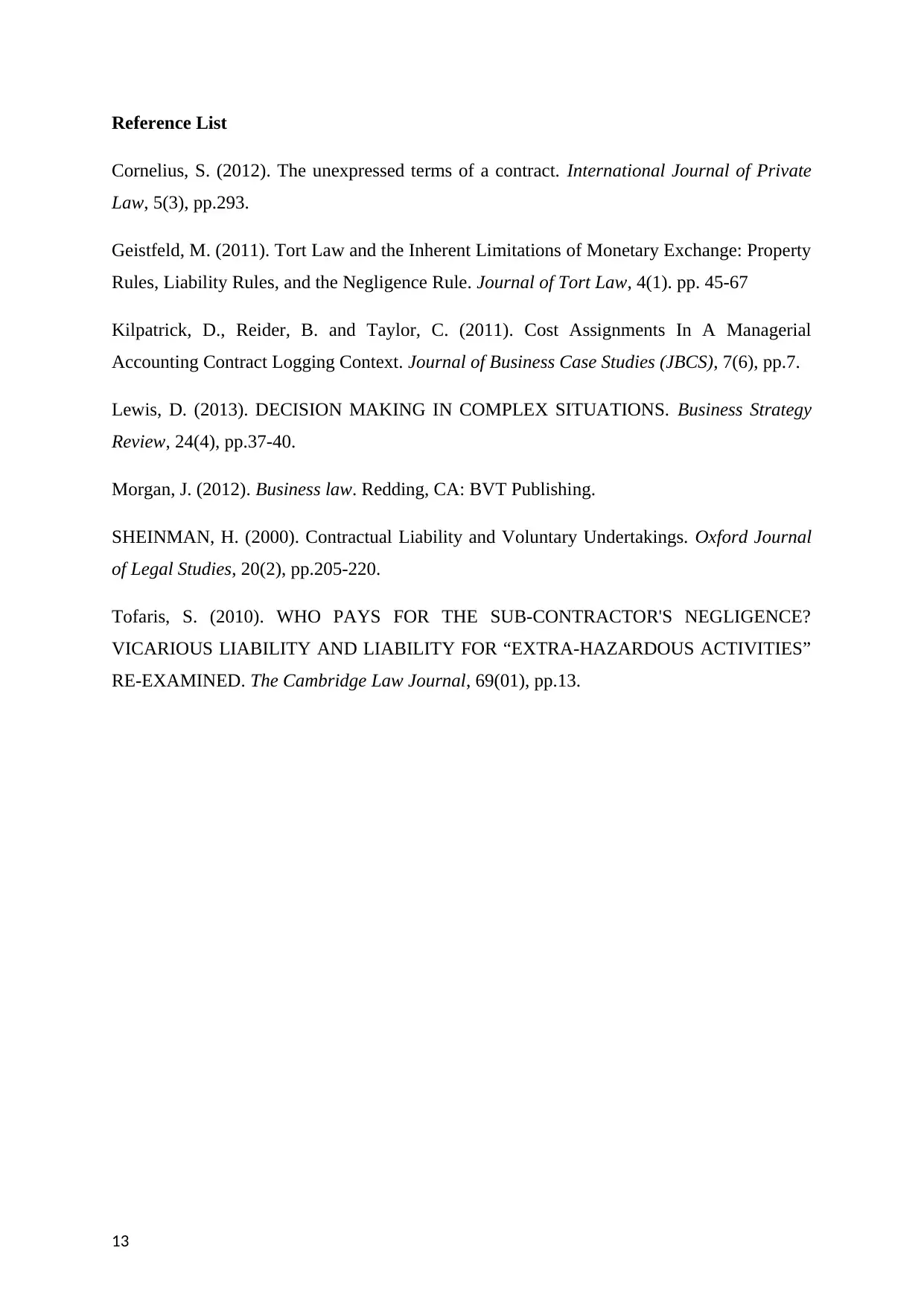The doctrine of 'respondent superior' suggests that employers are vicariously liable for any negligent acts by their employees, including cases where the employee causes harm to another person. In this case, the employer of Regent Hotel may be held liable for the harm caused by Colin to Roger, as they could not stop Colin's actions and did not provide enough training to Roger that could have controlled his attitude or anger. Additionally, the court may consider the 'frolic deviation' principle, which states that employers are not responsible for their employees' personal actions outside of work. The same doctrine also justifies the employer being held liable for any injuries caused by an employee, rather than another employee or coworker. Overall, the assignment highlights the importance of taking precautions against negligence in business organizations to ensure the validity of contracts and prevent liability issues.
![[object Object]](/_next/static/media/star-bottom.7253800d.svg)
![[object Object]](/_next/static/media/star-bottom.7253800d.svg)
